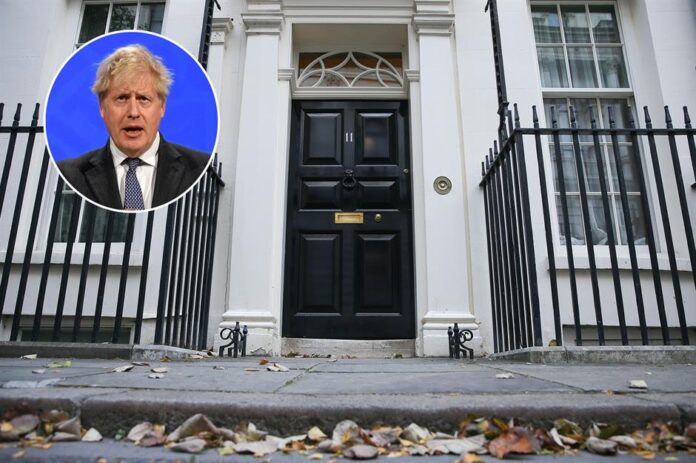Boris Johnson was “unwise” to allow the refurbishment of his Downing Street flat “without more rigorous regard for how this would be funded”, an independent adviser has found.
Lord Geidt, the prime minister’s adviser on standards, deemed that while the PM did not break the ministerial code, he had “unwisely” allowed the renovation to go ahead without knowing how it would be paid for.
He also discovered that the work to the PM’s flat above Number 10 Downing Street had partially been paid for by a Conservative Party donor.
However, Lord Geidt, who was appointed to the role in April and was formerly private secretary to the Queen, concluded that Mr Johnson was ‘unaware of the donor’s contribution’. Obviously the question here must be ‘why not?’.
Looking into the controversy over renovations at the PM’s Downing Street flat was Lord Geidt’s first task.
Last month, the Electoral Commission launched an investigation into how an upgrade to the apartment Mr Johnson shares with his fiancée Carrie Symonds above Number 11 Downing Street was paid for.
The prime minister receives an annual public grant of £30,000 to spend on his private residence, but there has been speculation the final bill was up to £200,000.
The PM has said he paid for the works out of his own pocket, but there were questions over how initial costs were funded and whether they were covered by a Conservative Party donor.
The commission said it is “satisfied that there are reasonable grounds to suspect than an offence or offences may have occurred”.
At PMQs in April, Mr Johnson said: “Any further declaration that I have to make – if any – I will be advised upon by Lord Geidt.”
As part of his new role, Lord Geidt signed off publications of the latest Register Of Ministerial Interests.
With regards to the flat, it said: “It is clear from the record that while a serious and genuine endeavour, the trust was not subjected to a scheme of rigorous project management by officials.
“Given the level of the prime minister’s expectations for the trust to deliver on the objects he had set, this was a significant failing.
“Instead, the prime minister – unwisely, in my view – allowed the refurbishment of the apartment at No 11 Downing Street to proceed without more rigorous regard for how this would be funded.”
The document also revealed that Lord Brownlow, a Conservative life peer in the House of Lords and former vice-chairman of the party, paid towards the redecoration costs.
The report stated: “I have considered the nature of that support and am content that no conflict (or reasonably perceived conflict) arises as a result of these interests.
“In respect of the Conservative Party, because of the strong connection between them and the prime minister, I do not believe that such support would put the prime minister under any different obligation to the relationship he already has as leader of the party.
“In respect of Lord Brownlow, as a member of the House of Lords, his interests are set out publicly and there is no evidence that he acted with anything other than altruistic and philanthropic motives.”
On whether the PM knew about Lord Brownlow’s involvement, the document added: “I accept that at the point when the prime minister became aware, he took steps to make the relevant declarations and seek advice.
“I also accept that, up until that point, he had reasonably assumed that earlier advice about the establishment of a trust had taken care of his interests.”
The register was due to be published sooner, but was delayed until a new adviser was appointed.
The role has been vacant since November 2020 when Sir Alex Allan resigned in the aftermath of a report into alleged bullying by Home Secretary Priti Patel.
Lord Geidt can raise concerns with the PM if he believes accusations that Mr Johnson broke the ministerial code should be investigated further, but is unable to launch such an investigation himself.
The prime minister retains the power to decide whether any minister has broken the code and what sanctions they should receive if so.
Lord Geidt was the Queen’s private secretary for a decade and joined the House of Lords as a crossbench peer following his departure in 2017.
A No 10 spokesperson said: “Lord Geidt’s independent report shows the prime minister acted in accordance with the Ministerial Code at all times.
“The prime minister has made a declaration in his list of ministerial interests, as advised by Lord Geidt.
“Cabinet Office officials were engaged and informed throughout and official advice was followed.
“Other than works funded through the annual allowance, the costs of the wider refurbishment of the flat are not being financed by taxpayers and have been settled by the prime minister personally.”
PLEASE SUPPORT US FOR JUST £2 A MONTH







